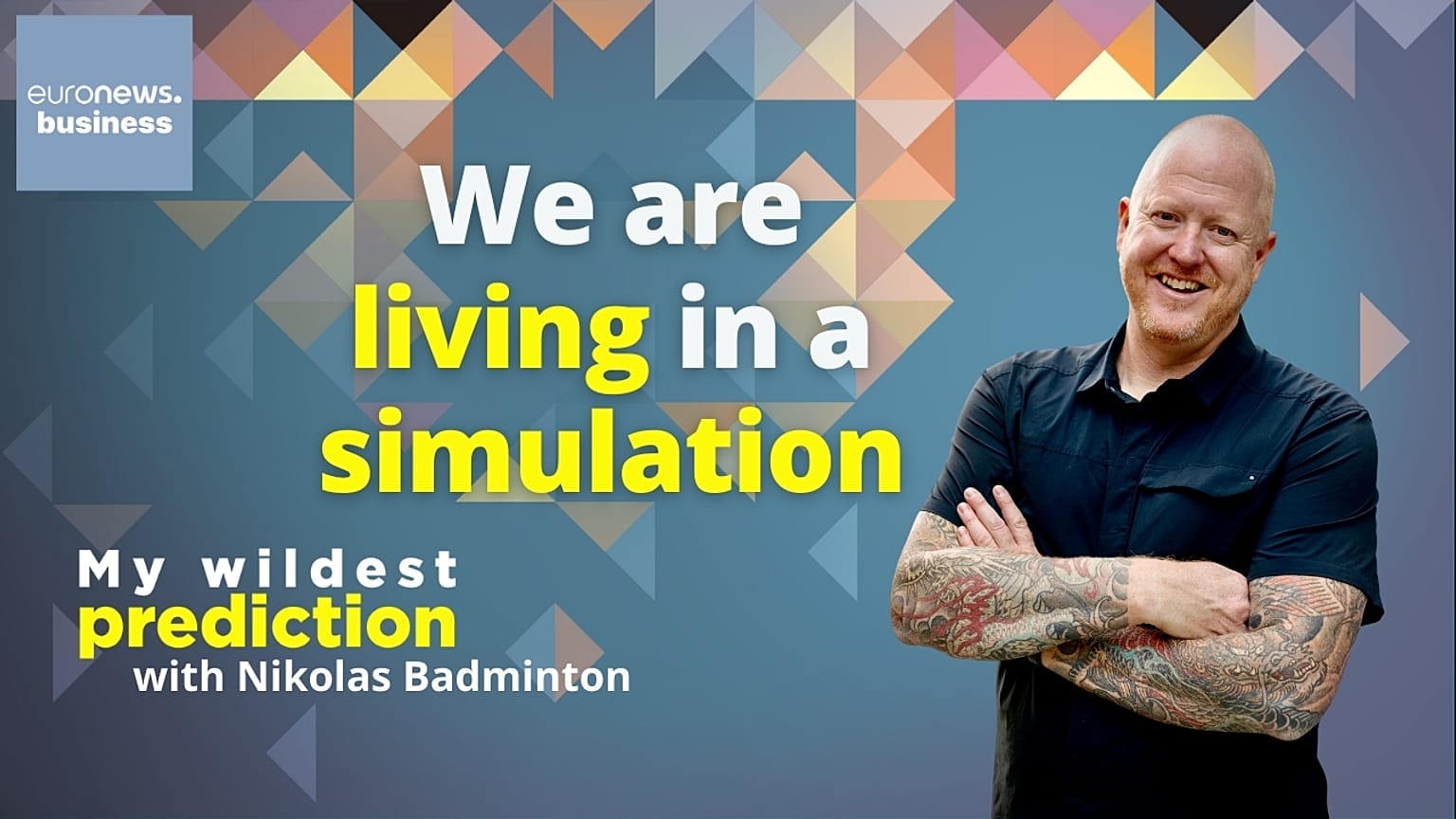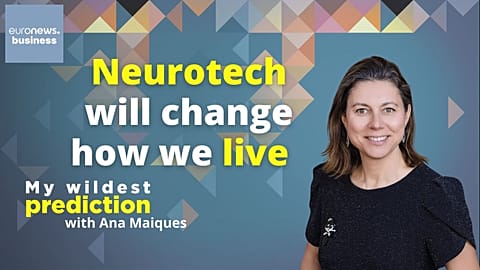Nikolas Badminton's work is the antithesis of mindfulness. He is a futurist and "hope engineer," renowned for delivering talks globally and mentoring high-level executives and government officials for over three decades.
My Wildest Prediction is a podcast series from Euronews Business where we dare to imagine the future with business and tech visionaries. In this episode, Tom Goodwin talks with Nikolas Badminton, Chief Futurist and Think Tank leader at Futurist.com, about the future of futurism.
Why do people say we are living in a simulation?
In the 1999 film "The Matrix," Neo realises he is living in a simulation when he encounters Morpheus, who offers him two pills: red and blue. The red pill reveals the truth, while the blue pill maintains ignorance. After taking the red pill, Neo wakes up in a pod, discovering his entire life was a simulated reality created by machines.
The idea that our reality, including the universe and everything within it, is a computer-generated simulation is deeply ingrained in popular culture, as seen in "The Matrix" and numerous other science fiction movies.
One of the earliest articulations of this concept comes from philosopher Nick Bostrom in his paper "Are You Living in a Computer Simulation?" published in 2003. Bostrom's arguments suggest a future society where technological advancement allows inhabitants to create intricate artificial worlds using powerful computers.
However, futurist Nikolas Badminton challenges the notion of living in a simulation, proposing instead that a digital simulation is enveloping our reality.
"That means, technologies and screens and experiences, becoming even more digital," he claims.
Badminton points to everyday examples like 3D billboards, drone displays, and augmented reality games like Pokemon Go as evidence of the blurring line between virtual and real. He also mentions designers like Keiichi Matsuda exploring dystopian, gamified environments.
"I think that there's almost like a human revolution that needs to come into the mix", Badminton adds, "I mean, we talk about humanising experiences and creating a more human world."
Why does a company need a futurist?
A futurist specialises in predicting future trends and developments across various fields, assisting companies by offering insights into emerging technologies, societal shifts, and market trends, thereby enabling strategic planning, innovation, and risk management.
In this capacity, Nikolas Badminton has collaborated with governments and companies. "People bring me in," he explains, "because suddenly you can see strange linkages in the world that they don't consider."
For instance, he highlights how self-driving vehicles' prevalence disrupts the human organ supply, necessitating larger facilities to grow human organs and pigs. "And then you think about the ethical considerations of having human-pig chimeras. And what do you do with that leftover carcass when you've got human pig bacon?"
Badminton aims to inspire people to think outside the box and consider alternative perspectives. He encourages imagining different scenarios and asking "what if" questions to spark creativity and innovation.





















